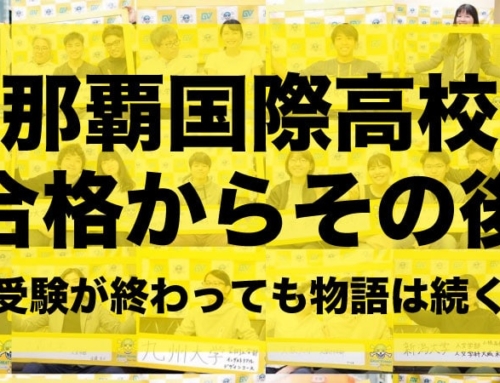こちらも、昨年多くの方にご好評いただいた、
琉大前期英語[解答例]です。
ぜひ、多くの方にご利用していただけたらと
思いますので、ぜひご確認下さい。
下記にPDFファイルも掲載しております。
第1問
問1 Because we put so much climate change-causing gases into the air that sea levels will probably rise another 30 to 60 centimeters in the coming years.
問2 We must keep our man-made temperature rise at just 1.5℃ above levels before the Industrial Revolution.
問3 ・To greatly reduce greenhouse gases.
別解:We other countries can greatly reduce greenhouse gases we produce.
・To accept the citizens of Maldives when they ask for help after their country disappears.
別解:We other countries can let the citizens of Maldives in our country when they show up on our shores in their boats.
・To kill the citizens of Maldives when they ask for help after their country disappears.
別解:We other countries can shoot the citizens of Maldives when they show up on our shores in their boats.
問4 People (who are) forced to flee their home because of problems caused by global warming.
問5 To move to one of Fiji’s islands (which is located around 1,930 kilometers away)
第2問
問1 (1)c (2)a (3)b (4)d (5)a (6)c
問2 (1)× (2)○ (3)× (4)× (5)○ (6)×
問3 (1)d (2)b (3)b
問4 Families, educators, and governments.
第3問
問1 (1)believe (2)manageかget (3)ethnicかcultural (4)touchかcontact
問2 (A)If given the opportunity, would you stay in Canada?
別解:Would you like to go back soon? など
(B)When do you see yourself going back to Canada?
別解:When are you planning to visit Canada again? など
第4問
【賛成】 I agree with Japan’s adoption of earlier summertime shifts. There are two reasons why I believe that it is better to start working earlier. Firstly, office workers can save the energy used by air conditioning since early mornings are not too hot. In addition, the varied commuting hours ease traffic jams and as a result reduce the greenhouse gases emitted. Secondly, the new shifts bring about an improvement in working efficiency. In Japan, working overtime into the late night has been a major problem for many years. Laws have been passed to limit such a practice, but even now it seems difficult to completely eliminate it. If people cannot stop working overtime, it is at least better to work earlier than later, since a number of medical reports say that people work more efficiently during the daytime than at night. For the two reasons mentioned above, I agree with the introduction of earlier summertime shifts. (155 words)
【反対】 I disagree with Japan’s adoption of earlier summertime shifts. Most businesses have already established their own schedules, so it would take them considerable time and effort to prepare new ones. With insufficient time to adjust, there would be problems for numerous people, such as lack of public transportation services for earlier commuters. Even if there was enough time to adjust, Japan’s summer is too short for people to get used to, since it only lasts for three months, from June until August. For a week or two after the period ends, people would likely confuse their regular shifts with their earlier ones. Consequently, this could establish September in Japan as a notorious month for unpunctuality, and this reputation might discourage foreign companies from working with Japanese companies. In conclusion, I see few merits in introducing an earlier working shift which is only likely to upset a traditional working schedule that has long been effective and efficient. (156 words)












コメントする
You must be logged in to post a comment.